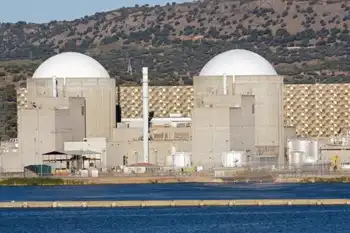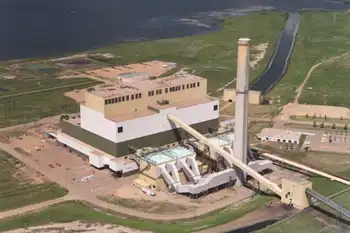Canada to get out of isotope business: PM
By Globe and Mail
NFPA 70e Training - Arc Flash
Our customized live online or in‑person group training can be delivered to your staff at your location.

- Live Online
- 6 hours Instructor-led
- Group Training Available
“We anticipate Canada will be out of the business,” Mr. Harper told a news conference.
The shutdown of the aging NRU nuclear reactor at Chalk River, Ont., which churns out a third of the world's supply of the radioactive material, has created a crisis for nuclear medicine specialists both in Canada and abroad.
And the Maples – two reactors that were supposed to replace the NRU – were scrubbed last year because Atomic Energy of Canada Ltd., a Crown corporation, could not find a solution to a design flaw that would make them more prone to a meltdown.
“It was a difficult decision but we can't spend hundreds and hundreds of millions of dollars and not produce any isotopes,” Mr. Harper said. “But, for whatever reason, Atomic Energy was not able to make that project work and there was no way that it would work.”
The Conservative government decided instead to spend money to keep the NRU operating until other sources of the isotopes around the world come online, Mr. Harper said.
“But, obviously, we will continue to have difficulties with a reactor that is variable and whose operation is not always dependable or predictable. That's just the tough reality of the situation.”
The Chalk River reactor has been out of service since the middle of May and will not come back online for at least three months as technicians try to repair a heavy water leak. Some officials have quietly suggested that it may never operate again.
The government has committed to seeking an extension of the NRU licence, which expires in 2011. That would keep the reactor going for another five years. But an additional extension beyond 2016 is “dubious,” a government spokesman said.
The failed Maples project has been a source of embarrassment for AECL, and the isotope issue has repeatedly been an irritant for the government.
Christopher O'Brien, the head of the Ontario Association of Nuclear Medicine, described the shortage this week as being “very bad.”
“We are basically down to emergency procedures only this Friday (June 12),” Dr. O'Brien said. “We have no idea what supply of isotopes will be coming in next week. And, as far as we know there is no available isotopes to do any weekend shifts this weekend.”
Nathan Cullen, the NDP critic for Natural Resources, said the government's “failure” should not be the reason that Canada steps out of the isotope business. Mr. Cullen said his party has been receiving plenty of information from former AECL employees who have said the Maples could be revived.
And Jean-Luc Urbain, the head of the Canadian Association of Nuclear Medicine, said the government must explain to the public, in simple language, why the Maple reactors can never be commissioned.
The difficulties for the government have been amplified by the emergence of an audiotape of a private conversation between Natural Resources Minister Lisa Raitt and an aide, in which she refers to the isotope issue as “sexy” because it involves “radioactive leaks, cancer.”
Cancer victims and their families across the country denounced the statements.
Ms. Raitt did not apologize when the conversation was first made public. At a news conference attended by several of the Prime Minister's top communications people, she choked back tears as she said she deeply regretted her remarks.
“As somebody who has been in their personal life deeply affected by cancer, the intent was certainly not to show any disrespect for cancer victims, survivors, or their families.”
Taking deep breaths, Ms. Raitt said it is clear her remarks have been interpreted as callous. “I want to offer a clear apology to anyone who has been affected by what I have said,” she told reporters.
Ms. Raitt said that when she was 11 years old, she watched her father die from colon cancer over a period of 18 months. “And 20 years later, I was in the room with my brother when he died of lung cancer,” she said. “This is a very personal issue for me, and one I do not take lightly.”











